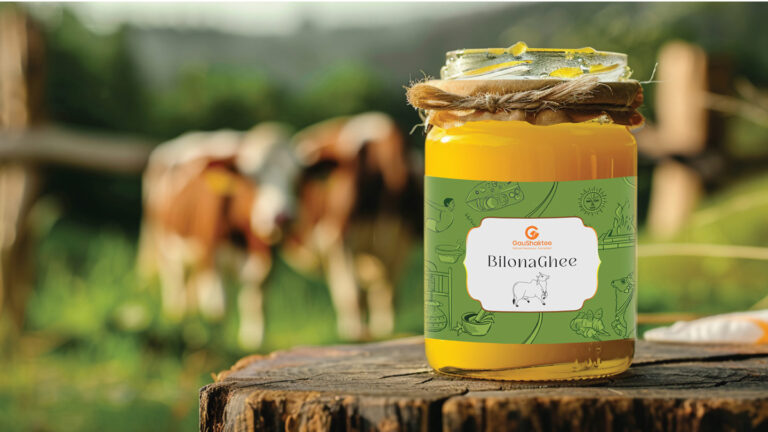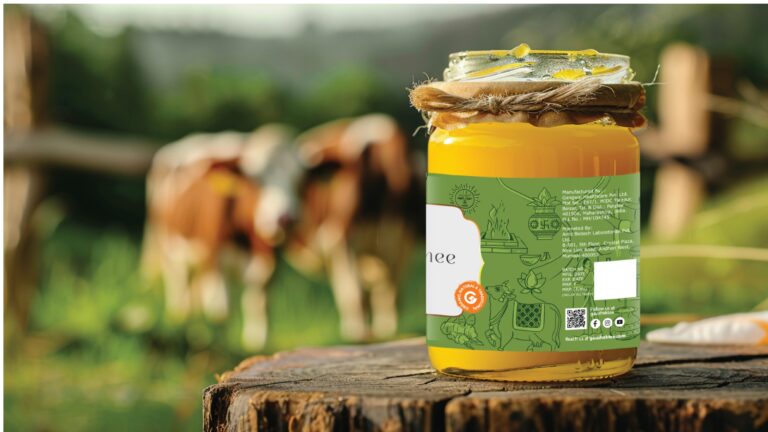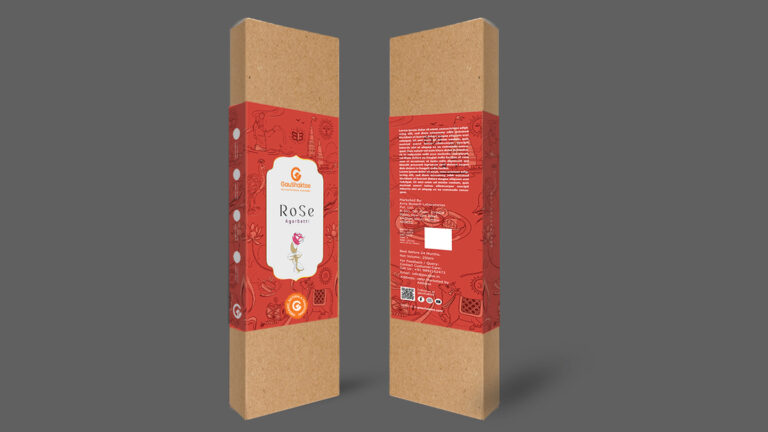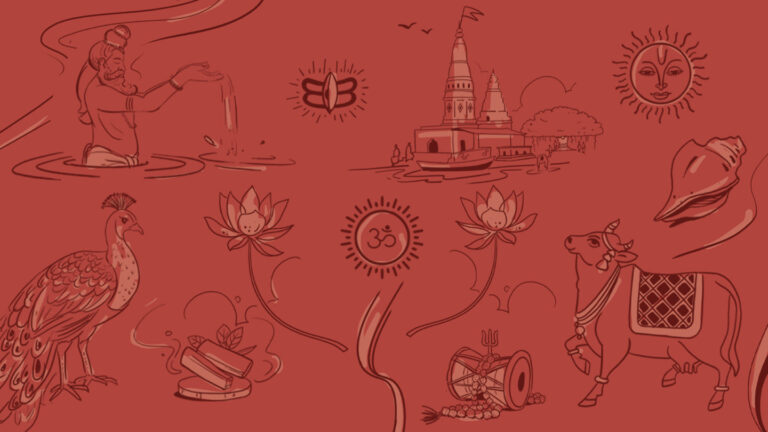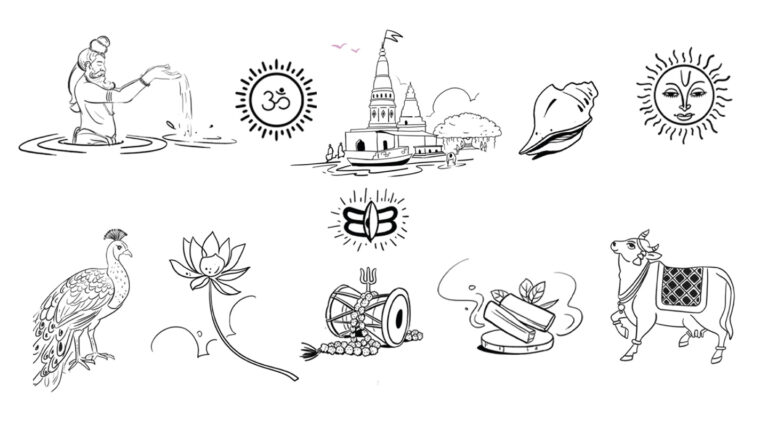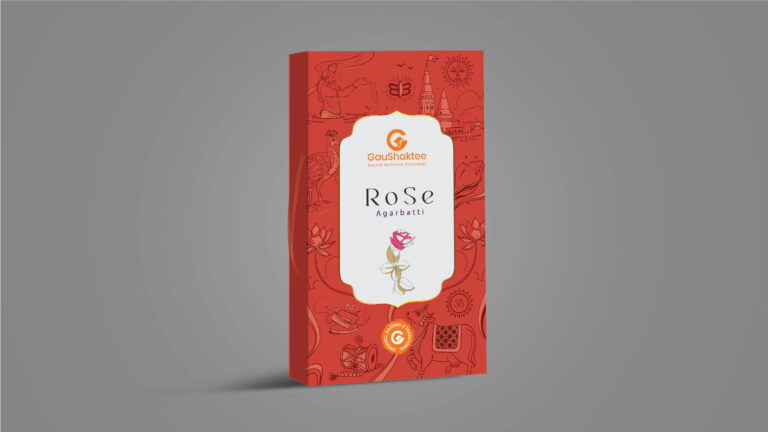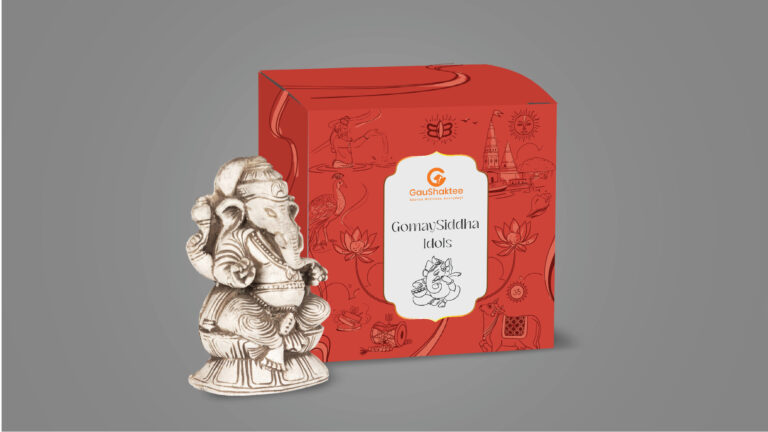Challenge
The challenge was twofold:
- Diverse Product Range – With products ranging from ghee and cosmetics to incense sticks and edibles, the packaging needed to maintain a unified identity while clearly distinguishing between each category.
- Balance of Tradition and Modernity – The brand needed to stay rooted in spiritual and cultural symbolism, but it also had to connect with new-age, wellness-driven, and urban consumers—without appearing too traditional or outdated.
Solution
After multiple immersive sessions with the GauShaktee team, we uncovered the core insight: while the cow was the heart of every product, the intended usage and mindset of each item varied greatly.
So, we created a Segmented Packaging System that organized products into 5 intuitive, emotionally resonant themes:
- Spiritual – Dhoop, samagri, and havan products. Inspired by temple motifs, earthy textures, and sacred geometry.
- Health – Ghee, cow-based chyawanprash, ayurvedic capsules. Designed with clean aesthetics and wellness cues.
- Organic – Everyday essentials and edibles. Natural tones, eco-typography, and rustic textures conveyed purity.
- Cosmetics – Face packs, soaps, balms. A fusion of elegance and tradition with soft palettes and herbal illustrations.
- Edibles – Traditional snacks and nutrition. Packaging borrowed from folk art and rural color stories, with a modern layout.
Each segment had its own visual language, yet all five were bound together through consistent logo placement, color harmony, and typography family—creating a brand that felt diverse, yet deeply connected.
Outcome
The response from the GauShaktee team was overwhelmingly positive. They instantly connected with the segmentation approach, appreciating how it preserved the spiritual essence of the brand while bringing clarity, functionality, and beauty to their wide product range.
Today, GauShaktee stands out on shelves and digital platforms not only for the depth of its philosophy but also for its aesthetic storytelling through packaging. The brand has successfully positioned itself as a way of life, not just a product range—blending ancient reverence with present-day relevance.


